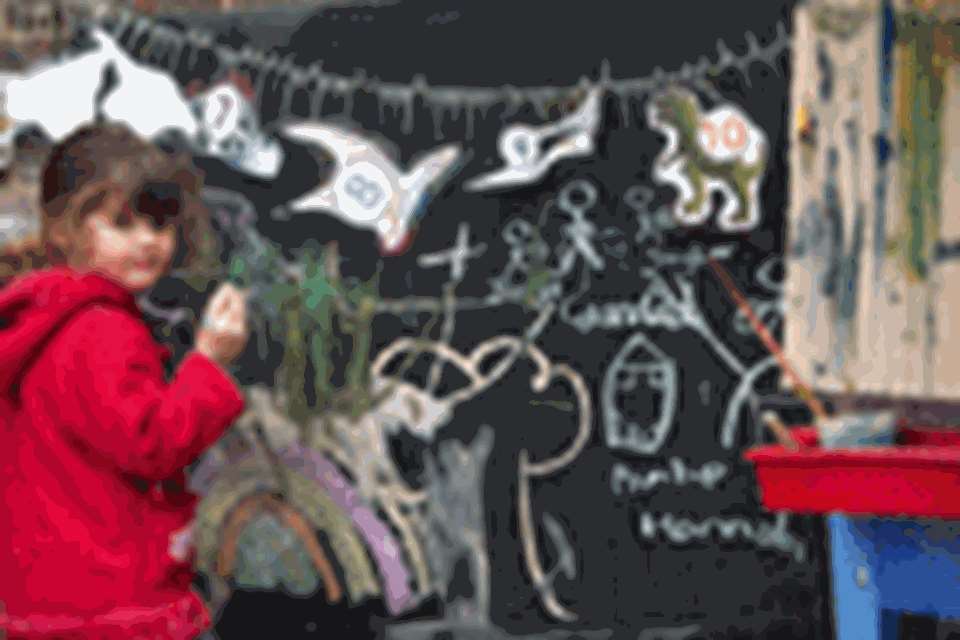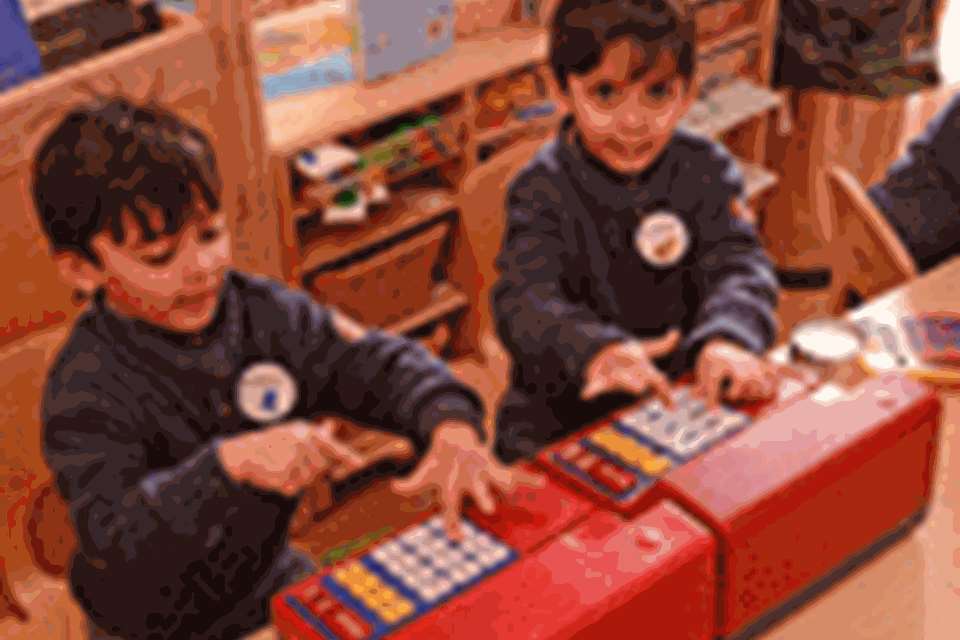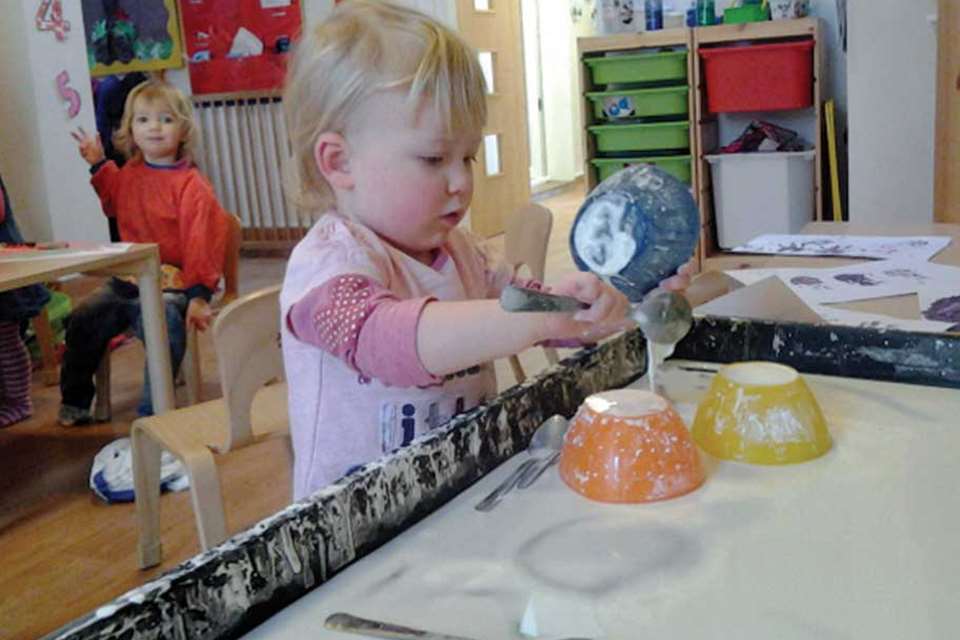Nursery Equipment: Maths - Measuring up?
Judith Stevens
Wednesday, May 20, 2015
There is potential for mathematical learning in all areas of a nursery, so long as practitioners are open to possibilities. Judith Stevens suggests ideas to inspire three- to five-year-olds.
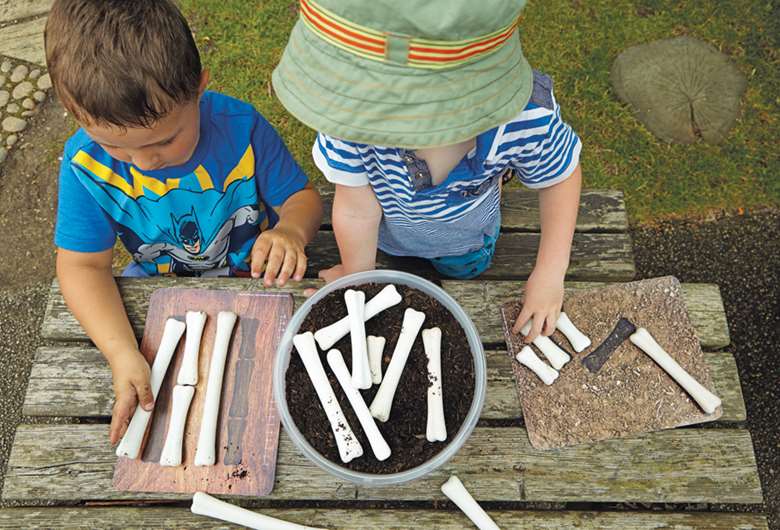
Young children's maths learning should be supported throughout both indoor and outdoor provision. A nursery team may choose to identify a 'maths zone', where specific resources are stored for use in all areas, but practitioners also need to identify the maths learning potential everywhere with everyday objects.
GUIDING PRINCIPLES
Practitioners need to consider several issues when picking maths resources.
Provide flexible resources
Don't be lured into buying sets of very limited mathematical resources that can be used in only one way - for example, sorting materials that can only be arranged by prime colours. Choose resources that can be used very flexibly, to explore aspects of measure such as weight or length as well as inspiring children to sort, compare and count.
Tune into children
Tune into children's current interests. So if the children in your nursery are fascinated by dinosaurs, identify how maths ties in with this.
Make a large collection of dinosaurs that children can sort, classify, describe, count and compare. Add tweezers and sand timers and support children as they transport as many dinosaurs as possible in a given time. Provide assorted boxes and encourage children as they predict how many dinosaurs fit into each box.
Don't be afraid to capitalise on current 'popular culture' - the latest fad could be brimming with aliens that can feed into mathematical learning.
Identify the potential in all resources
Look carefully at your maths zone. Is it filled with assorted multicoloured plastic objects? Or have practitioners noted the maths in everyday objects? Are there fascinating and engaging collections of natural resources, socks, gloves, scarves, bangles and beads? Are there five identical yellow plastic ducks to support the number rhyme, or do children have opportunities to explore and investigate a selection of fascinating fabric, wood, metal and knitted ducks?
Provide resources to support shape, space and measures
Some maths areas are filled to the brim with resources that aid counting and calculating, but have very few resources to support all aspects of measure.
Children need resources to help them learn about measuring length, height, weight, time and volume and capacity. When choosing items, ensure a balance that encourages exploration of all aspects of mathematics (see box, right).
COMMON MISTAKES
When selecting maths resources, it is easy to buy the wrong kind of product. Informed practitioners avoid buying the following types of resource.
- 'Narrow' products - those that can only be used in one way. For example, why buy a set of 'sorting animals' or 'sorting cars' if you can offer children a far better collection from current resources?
- Inappropriate products - be sure that resources are the right size for children. Avoid those that have 'fiddly' bits and are useless if a part is lost or broken. Choose games that children can use independently, without complicated rules. Check that resources look durable when they arrive. If they seem flimsy, return them to the supplier. Some products may be suitable for one three-year-old at home, but not for a group of 20 in nursery.
- Lots of different products - this results in having only a small number of each, and not enough of anything. It is far better to choose a large group-sized pack of just one new, high-quality construction set that promotes discussion and collaboration than lots of small sets. Top up sets of resources where necessary and make sure there are enough nuts and bolts to fix construction equipment together.
By taking a more creative, but organised, approach to resourcing maths learning around the nursery, practitioners can identify and provide open-ended, stimulating resources that are available to children in both their indoor and outdoor spaces. Include indoor and outdoor number lines and height charts - preferably 'home-made' with the children as well as bought versions.
EFFECTIVE RESOURCES
Here are some suggestions for resources that enable children to explore all aspects of mathematical learning including counting, calculating and measuring.
Collections
Exciting collections with a real context are a must throughout provision. For example, develop a 'mud laboratory' outdoors, with assorted cylinders, jugs, bowls, scoops, spoons, whisks, balances, storage containers and natural objects.
Laminate images and mathematical vocabulary prompts and add them to the laboratory. Introduce new resources on a regular basis, such as shiny metallic gravel one week, and some fresh new conkers or huge fir cones another week.
Ensure the area is well maintained and exciting and that practitioners model the use of mathematical vocabulary and a range of maths strategies.
Children will naturally make their own collections, too, so ensure there are lots of stacking boxes, shiny bags, wicker baskets and stretchy bags to be filled and emptied. Collections that may inspire children include:
- - bags and purses
- - boxes
- - shells, pebbles and conkers
- - beads and bangles
- - 'treasure', watches and clocks
- - balls and spheres
- - resources to support number rhymes - such as bottles, ducks and frogs
- - key rings, locks and keys.
Den building
There are lots of commercially available den frames and practitioners should use professional judgement about what will work well for them. But whatever you choose to use, every setting also needs to provide lots of 'do-it-yourself' den-making resour- ces. These can be sourced individually, or you can buy sets of buckets, poles and cement (see box below). Absolute essentials are:
- - assorted fabric pieces, blankets, duvet covers and pillow cases
- - carpet pieces and shower curtains
- - fixing materials - including high-quality, durable pegs and clips
- - huge boxes - including flat-packed boxes to be reconstructed
- - poles set in cement in buckets, to move around as supports
- - branches, logs and tree stumps.
Construction equipment
Never underestimate the potential for maths in construction areas. Plan the area and invest wisely in durable, large-scale equipment. Provide lots of laminated images of local buildings, such as the blocks of flats, places of worship and public buildings tshat children actually see around them.
Then provide lots of images of constructions the children have made - preferably with their comments about the models. Ideally, every construction set should have a home-made 'things we have made' laminated book to celebrate achievements and inspire new developments.
BEST BUYS
Den-making and mud kitchen equipment
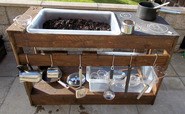 Lots of exciting den-building materials are available from Cosy, including these for making moveable den posts: broom staves (£3.99, set of four); builders' buckets (£5.49, set of four); ready-mixed postcrete (£8.79); camouflage netting (including 'snow' netting) by the metre (£8.99).
Lots of exciting den-building materials are available from Cosy, including these for making moveable den posts: broom staves (£3.99, set of four); builders' buckets (£5.49, set of four); ready-mixed postcrete (£8.79); camouflage netting (including 'snow' netting) by the metre (£8.99).
Cosy also supplies mud kitchens and related resources, including the Mobile Mud Kitchen (£125), the Log Kitchen Range (£49.95), Toddler Height Rustic Oven oven (£35) and Plastic Cauldrons (£4.29).
See also pages 8-10 for more ideas on this.
Blocks
Community Playthings offers lots of advice about what you might need to support children's block play and its blocks last for generations if cared for.
See the full range at www.communityplaythings.co.uk and turn to page 16 for more about block play.
Number lines
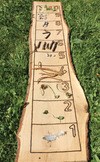 Outdoor number lines shouldn't be replicas of indoor versions. Cosy versions include: Nature Number Line (£12.95), Vertical Number Ladder (£22.95), Photo Border Roll Numbers (£19.99 for pack of two) and Real Life Number Line (£9.95).
Outdoor number lines shouldn't be replicas of indoor versions. Cosy versions include: Nature Number Line (£12.95), Vertical Number Ladder (£22.95), Photo Border Roll Numbers (£19.99 for pack of two) and Real Life Number Line (£9.95).
Linking to interests
The following from TTS appeal to children's interests, are durable and appealing and can be used to support maths in the widest sense:
- Number Rhyme Book Pack (£47.50)
- Squidgy Sparkle Numbers (£18.95)
- Giant Buttons (£14.99)
- Rainbow Easy Grip Tweezers (£9.99) and Rainbow Sorting Bowls (£7.99)
- Measuring Worms (£13.99).
Yellow Door also has a number of resources that are useful for supporting maths. Among them are:
- Dinosaur Bones Match and Measure Set (£15)
- Measuring Snakes (£50)
- Natural Sorting Tray (£12).
BOOKS
Provide maths and counting books in the book area, the maths zone and throughout the learning environment. See, for example: One is a Snail, Ten is a Crab by April Pulley Sayre; How Big is a Million? by Anna Milbourne; Biscuit Bear by Mini Grey; 365 Penguins by Jean-Luc Fromental and Ten Little Monkeys Jumping on the Bed by Tina Freeman.
For practitioners
Foundations of Mathematics: an active approach to number, shape and measures in the early years by Carole Skinner and Judith Stevens and The Building Blocks of Early Maths: bringing key concepts to life for 3-6 year olds by Elaine Bennett and Jenny Weidner.
MORE INFORMATION
- Community Playthings, www.communityplaythings.co.uk
- Cosy, www.cosydirect.com
- TTS Group, www.tts-group.co.uk.


